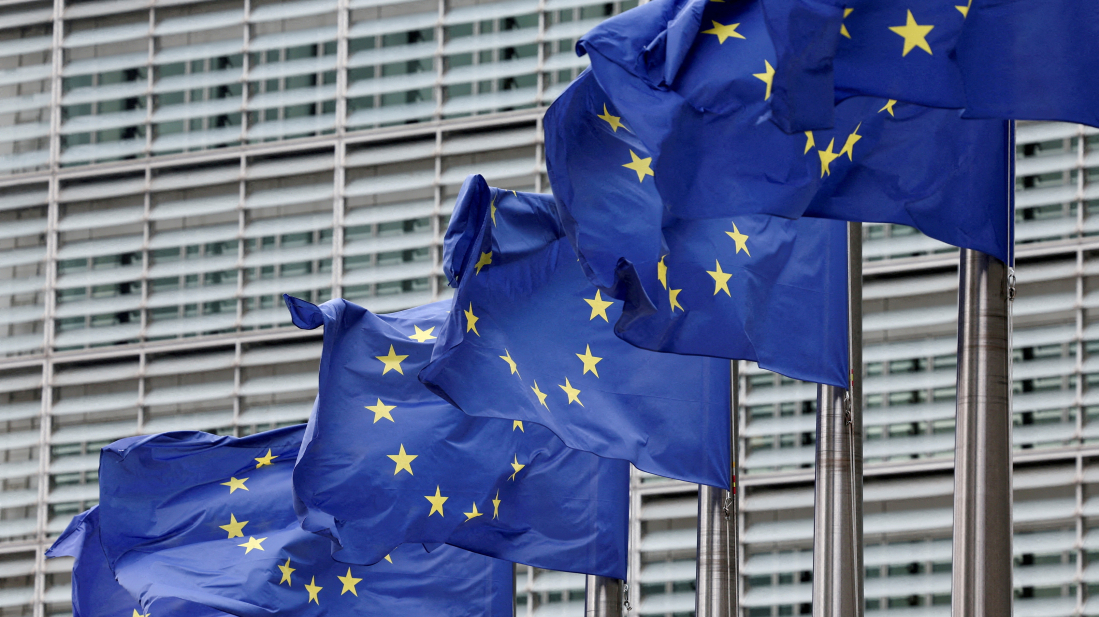Italy eyes January tests for delayed Olympic cable car in Cortina
Italy aims to begin testing a delayed cable car project in January as it seeks to ease transport pressure at the Milan–Cortina 2026 Winter Olympics,...

The European Union’s next wave of enlargement, particularly involving candidate countries across Central and Eastern Europe, could prove decisive for the continent’s energy security and competitiveness.
Russia’s full-scale invasion of Ukraine exposed deep vulnerabilities in Europe’s energy systems, especially in Central and Eastern Europe. Yet, since those weaknesses were revealed, countries in the region have made significant progress in boosting their energy security and reducing dependence on Russian supplies. Major steps have been taken to build new liquefied natural gas (LNG) infrastructure, promote renewables, and expand cross-border connections, turning Central and Eastern Europe into the focal point of Europe’s energy transition.
As the EU prepares for the next enlargement round, it must carefully consider how to integrate its priorities on energy security and the green transition into the process. This enlargement could act as a catalyst for competitiveness, resilience, and geopolitical influence, or, conversely, deepen internal divisions and create new vulnerabilities.
Energy security must be prioritised
The EU’s upcoming seven-year budget, the Multiannual Financial Framework, presents a rare opportunity to strategically finance cross-border energy infrastructure, including in candidate countries. These investments are essential for a stable, integrated European energy market.
By prioritising energy security in the framework, Brussels can strengthen supply chains, accelerate market integration, and reduce economic risks for aspiring member states.
Ukraine’s role and transatlantic cooperation
As the EU moves toward admitting Ukraine, its energy integration must be accelerated. Doing so will enhance both Europe’s security and competitiveness.
Although much of Ukraine’s energy infrastructure has been destroyed by the conflict, reconstruction offers an opportunity to build cleaner technologies, decentralised grids, and critical interconnectors. The country’s vast gas storage capacity can bolster regional energy security, while cooperation with U.S. partners in producing new energy components could create jobs and drive innovation.
Transatlantic coordination will be key. U.S. expertise in nuclear technologies, particularly small modular reactors, and its financial mechanisms can speed up Ukraine’s integration into the EU’s energy system. Viewing Ukraine’s accession through the lens of broader energy reconstruction aligns Europe’s and Washington’s geopolitical and economic interests.
The 2040 test: enlargement and climate goals
As candidate countries move closer to joining, the EU must also assess how their energy integration will affect its emissions reduction strategy. The bloc has recently proposed a 2040 climate target, a 90% emissions cut compared with 1990 levels, a goal that will reshape Europe’s economy and energy sector over the next two decades.
However, this target will be finalised before new members join, effectively forcing candidates to accept ambitious and resource-intensive commitments without negotiation. Such an approach risks undermining unity and fuelling political discontent in both current and future member states.
To prevent this, potential members must be involved in the talks early on, ensuring that the 2040 goals remain realistic and achievable.
Brussels’ geopolitical opportunity
Former Italian Prime Minister Mario Draghi recently warned that Europe must abandon the illusion that economic power alone guarantees geopolitical influence. Without coordinated action, he said, the EU risks falling behind in industrial competitiveness, energy security, and global reach.
By strategically linking enlargement to Central and Eastern Europe’s energy security, the EU can reclaim geopolitical strength. Integrating candidate countries into its energy networks, investing in their infrastructure, and aligning transatlantic objectives could turn Europe’s vulnerabilities into advantages.
Europe stands at a crossroads. Investment in the energy security of candidate states, strong transatlantic partnerships, and fair climate commitments will define whether the continent builds a competitive, secure, and sustainable future.
Snow and ice stalled travellers in northwest Europe on Wednesday, forcing around a thousand to spend the night in Amsterdam's Schiphol airport but delighting others who set out to explore a snow-blanketed Paris on sledges and skis.
U.S. President Donald Trump has warned that Iran could face a strong response from the United States if its authorities kill protesters amid ongoing unrest.
Iran is now facing a near‑total internet blackout as anti-government protests sweep the country. Major cities including Tehran have seen connectivity drop sharply, leaving millions of residents isolated from online communication.
New York City parents could soon have access to free childcare for two-year-old children following a joint announcement made by Mayor Zohran Mamdani and Governor Kathy Hochul on Thursday (8 January).
Tens of thousands of Iranians have taken to the streets in Tehran and across at least 28 cities in a wave of anti-government demonstrations, now entering their twelfth day.
A South Korean court hearing the case of former President Yoon Suk Yeol on charges of insurrection postponed the sentencing request until next week after a lengthy session. This case could potentially lead to a death penalty verdict for Yoon due to his failed attempt to impose martial law in 2024.
The United Nations has described footage of the fatal ICE shooting in Minneapolis as deeply disturbing, urging a thorough investigation and reaffirming the right to peaceful protest.
Italy aims to begin testing a delayed cable car project in January as it seeks to ease transport pressure at the Milan–Cortina 2026 Winter Olympics, despite the challenges of construction in mountainous terrain.
Storm Goretti has brought gale-force winds, heavy snow and freezing temperatures to parts of northern Europe, causing widespread power outages, flight cancellations and major transport disruption.
Minnesota officials have launched their own investigation into the fatal shooting of a woman by a U.S. Immigration and Customs Enforcement (ICE) officer, as protests spread across several U.S. cities and tensions grow between state and federal authorities.
You can download the AnewZ application from Play Store and the App Store.

What is your opinion on this topic?
Leave the first comment